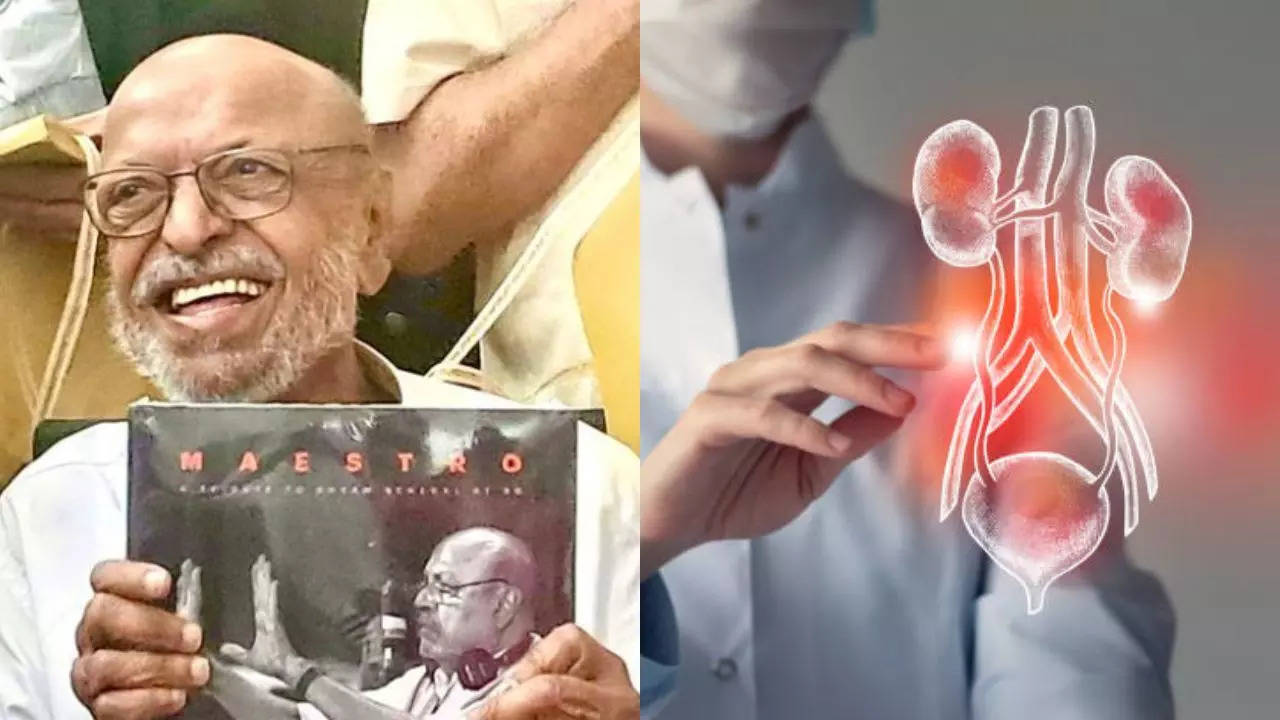Contents
-
news
-
Health
Veteran director Shyam Benegal has been battling which disease for years?
Veteran filmmaker Shyam Benegal, a pioneer of Indian parallel cinema, has died at the age of 90 due to chronic kidney disease, his daughter said. Benegal was undergoing home dialysis after both his kidneys failed last year. Read on to learn what chronic kidney disease really is – a condition that takes years to develop and can ultimately only be treated through a transplant.

Kidney disease is called chronic because kidney function gradually decreases over time, leading to kidney failure.
veteran film producer Shyam Benegal passes away at the age of 90 After battling chronic kidney disease for years. His daughter Pia confirmed, “He passed away at 6.38 pm at Wockhardt Hospital, Mumbai Central. He was suffering from chronic kidney disease for many years, but it had become very bad. This is the reason for his death.”
Known for his hard-hitting and spectacular films, the critically acclaimed director had undergone dialysis at home last year after suffering from failure of both his kidneys.
What is chronic kidney disease?
Chronic kidney disease, or CKD, occurs when irreparable damage to your kidneys And they stop working the way they should. According to doctors, in this condition, your kidneys, which normally filter toxins and excess water from your blood, lose their function. This causes waste to accumulate in your blood.
Doctors say kidney disease is called chronic because kidney function gradually decreases over time, leading to kidney failure – or end-stage kidney disease. While not everyone with CKD will develop kidney failure, without treatment the disease often gets worse.
There is no cure for chronic kidney disease. However, there are some steps you can take to minimize the damage.
What are the five stages of CKD?
According to experts, the stages of CKD are based on how well your kidneys are able to function. filter waste from your bloodBlood and urine tests determine which stage of CKD you are in.
first stage
This is considered a mild stage where your kidneys are working well but there is some damage.
Step 2
In this stage, your kidneys work but their function starts slowing down due to damage.
step 3
Your kidneys are not working properly and the damage ranges from mild to moderate. You may start seeing symptoms in this stage.
step 4
Your kidneys are now severely damaged and close to failing.
Step 5
Your kidneys have completely stopped working and you will need an immediate transplant.
Symptoms and signs of chronic kidney disease
As mentioned, the early stages of chronic kidney disease usually do not cause noticeable symptoms. However, once you start having symptoms, the first signs that something is wrong may include swelling in your hands and feet, itchy skin, or the need to urinate more often. Some would include:
- needing to urinate more all the time
- feeling tired, weak, and low on energy
- loss of appetite
- Swelling
- breathlessness
- bubbly and foamy urine
- puffy eyes
- dry and itchy skin
- insomnia
- numbness in hands and feet
- frequent nausea and vomiting
- muscle cramps and pain
- high blood pressure
- skin darkening
Doctors say it takes years for waste to build up in your blood and cause symptoms.
What causes chronic kidney disease?
Doctors say kidney diseases occur when your kidneys become damaged and are no longer able to filter your blood. Some reasons for this would be:
- high blood pressure, which directly affects kidney function
- glomerulonephritis in which your kidney’s glomeruli—filtering units—become damaged
- Polycystic kidney disease is a genetic disorder that causes multiple fluid-filled cysts to develop in your kidneys.
- Nephropathy, in which your body’s immune system attacks the waste-filtering membranes in your kidneys.
- diabetes, which damages or disables one or more nerves
Get the latest news live on Times Now with breaking news and top headlines from around the world.


